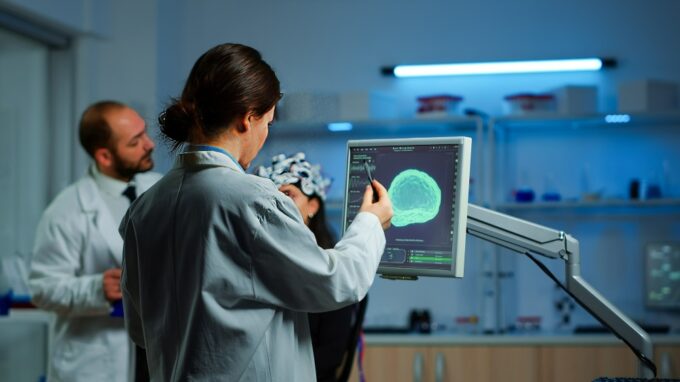Introduction
In recent years, scientific research has shed light on an extraordinary biological pathway that connects two of the most complex systems in the body: the brain and the digestive tract. Known as the Gut-Brain Axis, this intricate communication network has become a subject of intense exploration in neurology, psychiatry, and even integrative medicine.
For individuals living with neurodisability, this discovery represents a potential turning point. Because traditional approaches often address only the neurological symptoms, the Gut-Brain Axis opens up new opportunities for holistic treatment strategies that target both neurological and gastrointestinal systems simultaneously.
Understanding the Gut-Brain Axis
The Gut-Brain Axis refers to the bidirectional communication system between the central nervous system and the enteric nervous system. In simpler terms, the brain and the gut constantly exchange signals through hormones, neurotransmitters, and immune pathways.
Interestingly, over 70% of the body’s immune system resides in the gut, making it an essential player in maintaining not only digestive health but also cognitive and emotional stability. For individuals with neurodisability, disruptions in this axis may explain why gastrointestinal issues often accompany neurological conditions.
Why It Matters in Neurodisability
Neurodisability encompasses a wide range of conditions such as cerebral palsy, autism spectrum disorders, epilepsy, and acquired brain injuries. These conditions often come with additional challenges like:
-
Chronic digestive issues
-
Altered immune responses
-
Heightened stress sensitivity
-
Difficulty regulating mood and behavior
Because the Gut-Brain Axis influences both neurological and digestive functioning, its role in neurodisability cannot be underestimated. For example, children with autism frequently experience gut-related problems, and recent studies suggest that improving gut health can positively impact behavioral outcomes.
Emerging Treatment Approaches
Exploring the therapeutic potential of the Gut-Brain Axis has led to exciting innovations in patient care. Researchers and clinicians are now investigating how modifying gut health can help manage neurodisability symptoms more effectively.
Some of the most promising approaches include:
-
Dietary Interventions: Tailoring food plans that promote gut microbiome diversity.
-
Probiotics and Prebiotics: Introducing beneficial bacteria that influence neurotransmitter production.
-
Stress Management: Incorporating mindfulness and relaxation techniques to reduce gut-related stress responses.
-
Personalized Medicine: Combining neurological therapies with digestive care to provide comprehensive treatment.
These interventions highlight that managing neurodisability is not just about addressing brain function but also about nurturing the gut environment.
Integrative and Holistic Care
Traditional neurological treatment often emphasizes medication, physical therapy, or cognitive rehabilitation. However, the emerging role of the Gut-Brain Axis encourages a more holistic perspective. This approach integrates conventional medicine with lifestyle adjustments, nutritional strategies, and stress reduction techniques.
Moreover, Ayurveda and other integrative practices have long recognized the interconnection between mind and digestion. By combining modern scientific insights with time-tested holistic practices, patients with neurodisability may benefit from more balanced and sustainable outcomes.
The Role of Research and Clinical Innovation
As interest grows, universities, medical research centers, and healthcare providers are launching clinical trials to better understand the Gut-Brain Axis. Many of these studies explore how microbiome diversity affects brain function and whether targeted gut therapies can reduce neurodisability symptoms.
Furthermore, healthcare professionals like Dr. Vivek are contributing significantly to this field by bridging neurological expertise with integrative treatment models. Such work reinforces the importance of a multi-disciplinary approach, where neurologists, gastroenterologists, nutritionists, and therapists collaborate to improve patient care.
Looking Ahead: The Future of Treatment
The exploration of the Gut-Brain Axis is still in its early stages, but its implications for neurodisability treatment are profound. Future directions include:
-
Developing microbiome-based therapies tailored to specific conditions.
-
Creating predictive models to personalize treatment for neurodisability patients.
-
Expanding cross-disciplinary collaboration to ensure whole-person care.
This forward-looking perspective ensures that treatment strategies will evolve from symptom management toward comprehensive wellness.
Conclusion
The recognition of the Gut-Brain Axis as a central player in neurodisability treatment is transforming medical practice. By embracing both traditional and innovative approaches, patients can achieve improved quality of life. Importantly, the gut-brain connection, when addressed alongside neurological care, offers hope for more balanced outcomes. In this evolving landscape, the presence of supportive spaces, such as a neurologist clinic in Dubai, highlights how integrative approaches are becoming increasingly accessible globally.
FAQs
Q1. Who can benefit from Gut-Brain Axis treatments?
Individuals with neurodisability, especially those experiencing digestive issues or mood regulation difficulties, can benefit from therapies targeting the Gut-Brain Axis. However, treatment plans should always be personalized by medical professionals.
Q2. What treatments are commonly used to support the Gut-Brain Axis?
These may include dietary changes, probiotics, stress management, and integrative practices like Ayurveda. In some cases, conventional neurological therapies are combined with gut-focused strategies for maximum benefit.
Q3. How soon can improvements be seen in neurodisability patients?
The timeline varies depending on the condition, its severity, and the chosen treatment strategy. Some patients may notice gradual improvements in digestion and mood within weeks, while neurological changes might take longer to manifest.



